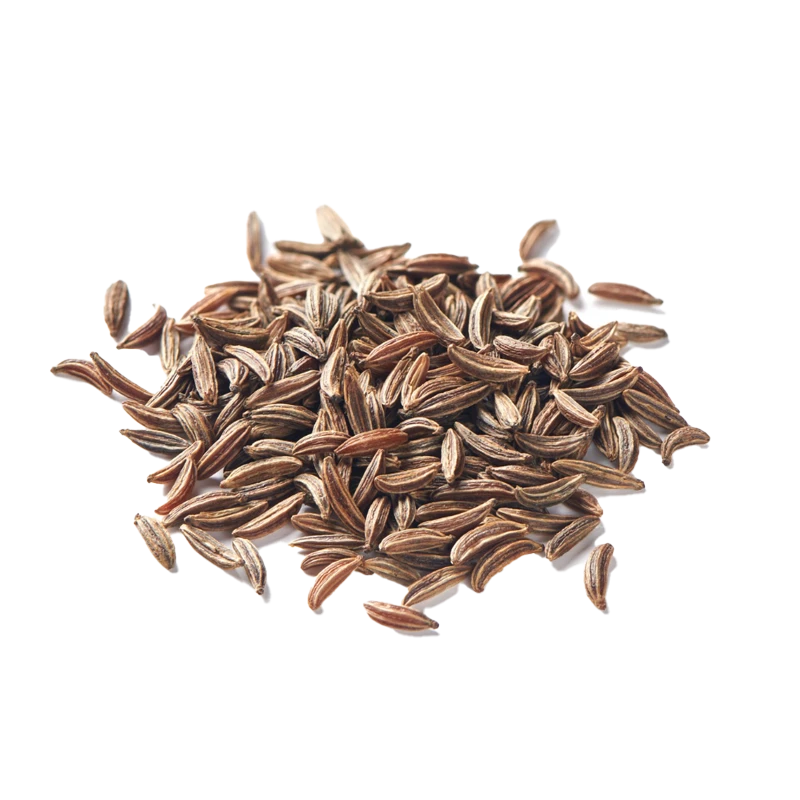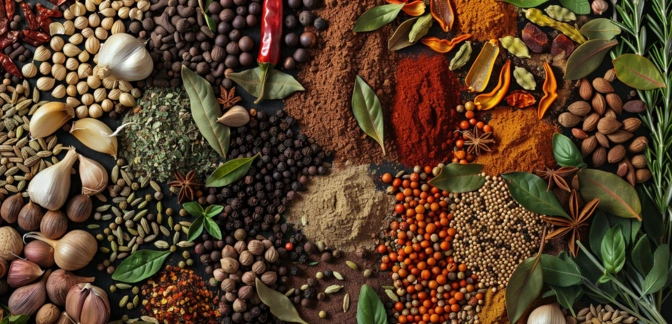Caraway Seed — Nutrients, Health Benefits, And Shopping Tips

Written by Listonic Team
Last update on September 4, 2024
Nutrients
Nutrition facts
Amount per 100 g
Calories
🔥 333 kcal
| Nutrition per: 100 g | Value | % Daily Value* |
|---|---|---|
| Carbs | 50 g | 18.18% |
| Fiber | 38 g | 135.71% |
| Sugars | 0 g | - |
| Glycemic Index | 0 | - |
| Protein | 20 g | 40% |
| Sodium | 17 mg | 0.74% |
| Total Fat | 15 g | 19.23% |
*The % of Daily Value (DV) tells you how much a nutrient in a serving of food contributes to a daily diet. 2,000 calories a day is used for general nutrition advice.
38 g
✅ High Fiber Content
20 g
🧀 Good Protein Content
Key takeaways
Health benefits
- Supports digestive health by relieving bloating, gas, and indigestion due to its carminative properties.
- Rich in antioxidants, which help protect the body from free radicals and reduce inflammation.
- Contains essential vitamins and minerals such as iron, calcium, magnesium, and Vitamin C, which support overall health and well-being.
- May help with respiratory health, providing relief from coughs and bronchial issues due to its expectorant properties.
- Boosts immune function due to its antimicrobial properties.
Health risks
- Potential allergic reactions in some individuals, causing symptoms like itching, swelling, or difficulty breathing.
- Digestive discomfort such as bloating, gas, or stomach cramps when consumed in large quantities, especially if not accustomed to high-fiber foods.
- Possible interaction with medications particularly anticoagulants or blood thinners, as caraway seeds may affect blood clotting.
- Risk of contamination with mold or other toxins if caraway seeds are not properly stored, which can pose health risks.
How to choose caraway seed
Caraway seeds should be uniform in size and have a distinct, pungent aroma. The seeds should be dark brown, without any gray or faded spots.
Avoid caraway seeds that are dull in color or have an off-smell, which can indicate age or poor storage conditions. Quality caraway seeds will be firm and crunchy when tasted.

How to store caraway seed
Airtight containers are best for storing caraway seeds in a cool, dry place. A pantry or spice cabinet works well to preserve their flavor and aroma. Properly stored caraway seeds can last up to a year.
Moisture and light can cause caraway seeds to lose their potency, so avoid these conditions. Do not store near heat sources like the stove, as this can accelerate the loss of flavor. Ensuring the container is well-sealed helps maintain their freshness.
✅ Extra Tip
How long does it last?
Caraway seed can last for 2-3 years when stored in an airtight container in a cool, dark place. Ground caraway loses its potency faster and should be used within 6 months to 1 year.
What to do with leftovers?
Leftover caraway seeds can be used in a variety of culinary and non-culinary ways. In the kitchen, they’re often used to flavor breads, sausages, and soups, adding a distinctive earthy and slightly sweet taste. Caraway seeds are also great in pickling mixtures or as a seasoning for roasted vegetables.
Beyond cooking, caraway seeds have been traditionally used in herbal remedies. They can be brewed into a tea to help aid digestion and relieve bloating. Caraway seeds can also be added to potpourri for a warm, spicy aroma or used as a natural pest repellent in the garden, as their strong scent can deter insects.
👨⚕️️ Medical disclaimer
Discover products from other categories
Listonic Team
Fact-checked
Our editorial team checked this article to make sure it was accurate at the time of publishing it.
Get the top-rated shopping list app

caraway seed
1 piece







